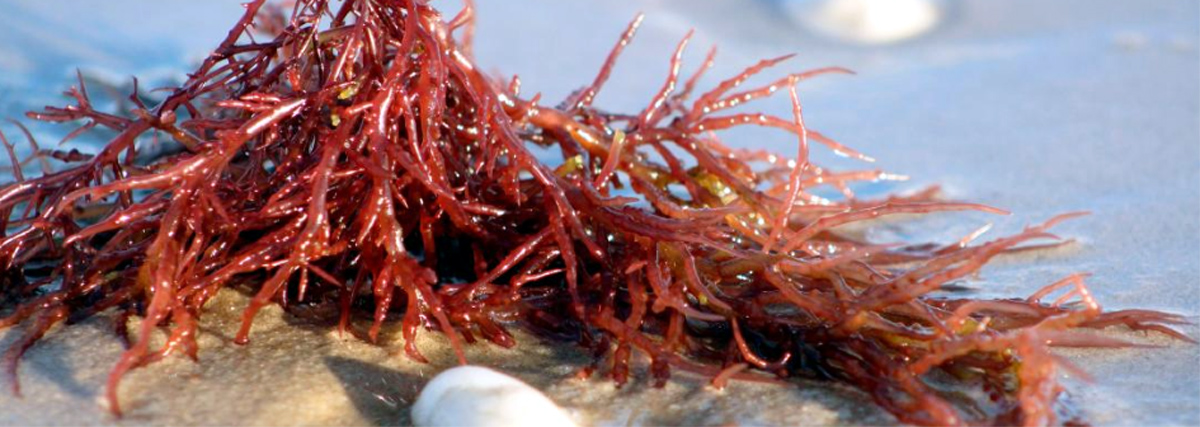Carrageenan is a food additive derived from red seaweed. It has been the subject of controversy due to conflicting research on its safety and potential health effects. While widely used as a thickener and stabilizer in various food products, concerns have been raised about its possible link to inflammation and digestive issues, prompting ongoing debate among scientists and consumers alike.
Types of Carrageenan
Carrageenan is classified into three main types: kappa, iota, and lambda, each with distinct properties and applications in the food industry. Kappa carrageenan forms strong, rigid gels when combined with potassium salts and is commonly used in dairy products. Iota carrageenan produces elastic gels with calcium salts and is utilized in pharmaceutical applications. Lambda carrageenan, unlike the others, does not form gels but creates high-viscosity solutions, making it ideal for providing creamy textures
- Kappa: Used in desserts, ice cream, and chocolate products for stability and preventing sugar crystallization
- Iota: Applied in bakery items like cake icings and bread dough for thickening and gelation
- Lambda: Employed in dairy products, salad dressings, and beverages for bodying and thickening
These different types of carrageenan allow food manufacturers to achieve specific textures and functionalities in a wide range of products, from dairy alternatives to processed meats.
Carrageenan in Vegan Products
Carrageenan is widely used in vegan products as a plant-based alternative to animal-derived thickeners and stabilizers like gelatin. Its versatility makes it a popular ingredient in various vegan foods, including:
- Plant-based milks (almond, soy, oat) to improve texture and prevent separation
- Vegan cheeses and cream cheese alternatives for a smoother consistency
- Dairy-free ice creams to enhance creaminess
- Vegan marshmallows as a gelling agent
- Plant-based meat alternatives for improved texture
While carrageenan is considered vegan-friendly due to its seaweed origin, some vegans debate its ethical status due to concerns about its extraction methods potentially harming marine ecosystems. However, major vegan organizations like the International Vegetarian Union and the Vegan Society recognize carrageenan as a vegan ingredient. As with any food additive, individuals with specific health concerns may choose to limit their consumption of products containing carrageenan.
Poligeenan vs. Food-Grade Carrageenan
Food-grade carrageenan and poligeenan (also known as degraded carrageenan) are distinct substances with different properties and safety profiles. While food-grade carrageenan is approved for use in food products, poligeenan is not and has been associated with potential health risks. Key differences include:
- Molecular weight: Food-grade carrageenan has a higher molecular weight (200-800 kDa) compared to poligeenan (10-20 kDa)
- Production: Poligeenan is created by subjecting carrageenan to extensive acid hydrolysis at low pH and high temperatures
- Safety: Food-grade carrageenan is generally recognized as safe (GRAS) by the FDA, while poligeenan is considered a possible carcinogen
- Digestive effects: Food-grade carrageenan largely passes through the digestive system intact, unlike poligeenan which can cause inflammation and ulceration
It’s important to note that the human body cannot convert food-grade carrageenan into poligeenan during digestion, as it lacks the necessary conditions to replicate the manufacturing process.
Carrageenan Safety Concerns
While carrageenan is approved as a food additive by regulatory agencies, concerns about its safety persist. Some studies suggest potential health risks associated with carrageenan consumption:
Inflammation: Research indicates carrageenan may trigger inflammatory responses in the digestive system, potentially contributing to conditions like inflammatory bowel disease.
Intestinal permeability: A study found that carrageenan consumption increased small intestine permeability, likely due to inflammation.
Glucose intolerance: Data suggests that participants with higher body weight experienced reduced insulin sensitivity after carrageenan intake.
Microbiome disruption: Carrageenan may alter gut microbiota, particularly affecting beneficial bacteria like Akkermansia muciniphila.
However, it’s important to note that many studies showing harmful effects used animal models or cell cultures, and human research is limited. The food industry maintains that food-grade carrageenan is safe, citing its long history of use and regulatory approval. Some experts recommend limiting carrageenan consumption, especially for individuals with existing digestive issues, until more conclusive human studies are available.
More Resources:

